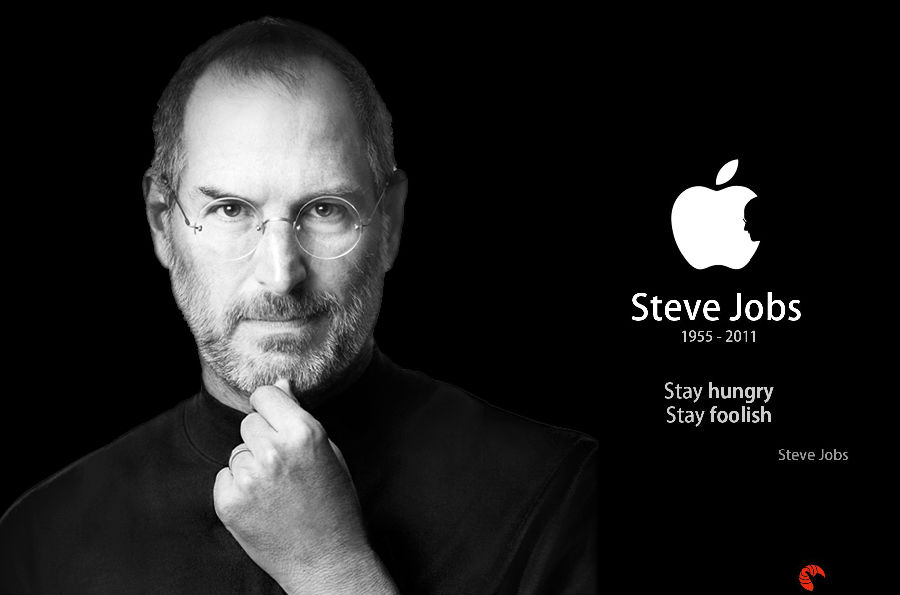Jobs, of course, didn't see it that way.
當(dāng)然,喬布斯不這么認(rèn)為。
"I haven't got any sort of odd chip on my shoulder," he told Newsweek.
“我沒(méi)有任何挑釁的意思。”他對(duì)《新聞周刊》說(shuō)。
Once again he invited his favorite reporters over to his Woodside home,
喬布斯再次把自己最偏愛(ài)的記者邀請(qǐng)到伍德賽德的家中,
and this time he did not have Andy Cunningham there urging him to be circumspect.
這一次,他沒(méi)有叫安迪·坎寧安過(guò)來(lái)勸自己保持謹(jǐn)慎。
He dismissed the allegation that he had improperly lured the five colleagues from Apple.
他駁斥了蘋(píng)果公司的指控——不正當(dāng)?shù)貜奶O(píng)果公司引誘5名員工。
"These people all called me," he told the gaggle of journalists who were milling around in his unfurnished living room.
“這些人都給我打過(guò)電話(huà)。”他告訴那些在他的空屋子里來(lái)回轉(zhuǎn)悠的記者,
"They were thinking of leaving the company. Apple has a way of neglecting people."
“他們?cè)缇涂紤]離開(kāi)蘋(píng)果公司。蘋(píng)果公司總能忽視人。”
He decided to cooperate with a Newsweek cover in order to get his version of the story out, and the interview he gave was revealing.
他決定與《新聞周刊》合作一篇封面報(bào)道,說(shuō)出自己的故事。他在這次采訪中真情流露。
"What I'm best at doing is finding a group of talented people and making things with them," he told the magazine.
“我最擅長(zhǎng)的就是發(fā)現(xiàn)一批天才,然后和他們一起創(chuàng)造東西。”他告訴《新聞周刊》說(shuō)。

He said that he would always harbor affection for Apple.
他表示,自己對(duì)蘋(píng)果會(huì)永遠(yuǎn)懷有感情。
"I'll always remember Apple like any man remembers the first woman he's fallen in love with."
“我會(huì)永遠(yuǎn)記得蘋(píng)果,就像所有男人都會(huì)記得自己愛(ài)上的第一個(gè)女人那樣。”
But he was also willing to fight with its management if need be.
但是,如果有必要,他也愿意反抗蘋(píng)果公司的管理層。
"When someone calls you a thief in public, you have to respond."
“如果有人公開(kāi)說(shuō)你是賊,那你就得作出回應(yīng)。”
Apple's threat to sue him was outrageous. It was also sad.
蘋(píng)果公司威脅控告喬布斯及其同事的行為太過(guò)分,也令人傷心。
It showed that Apple was no longer a confident, rebellious company.
這表明,蘋(píng)果不再是一家自信、叛逆的公司。
"It's hard to think that a $2 billion company with 4,300 employees couldn't compete with six people in blue jeans."
“很難想象,一個(gè)市值20億美元、擁有4300名員工的公司,會(huì)競(jìng)爭(zhēng)不過(guò)6個(gè)穿牛仔褲的人。”
To try to counter Jobs's spin, Sculley called Wozniak and urged him to speak out.
為了反擊喬布斯,斯卡利找到沃茲尼亞克,勸他站出來(lái)說(shuō)話(huà)。
"Steve can be an insulting and hurtful guy," he told Time that week.
“史蒂夫是一個(gè)會(huì)侮辱人、傷害人的家伙。”他的話(huà)登上了那一周的《時(shí)代》雜志。
He revealed that Jobs had asked him to join his new firm
他透露,喬布斯曾打過(guò)電話(huà)找他,要他加入自己的新公司
it would have been a sly way to land another blow against Apple's current management
這本來(lái)是狡猾的一招,用以進(jìn)一步打擊蘋(píng)果公司當(dāng)前的管理層—
but he wanted no part of such games and had not returned Jobs's phone call.
但是沃茲尼亞克表示,自己不想成為這種游戲的一部分,他也沒(méi)有回復(fù)喬布斯的電話(huà)。
To the San Francisco Chronicle, he recounted how Jobs had blocked frogdesign from working on his remote control under the pretense that it might compete with Apple products.
根據(jù)《舊金山紀(jì)事報(bào)》的報(bào)道,沃茲尼亞克講述了喬布斯曾經(jīng)以可能會(huì)與蘋(píng)果產(chǎn)品造成競(jìng)爭(zhēng)為幌子,阻止青蛙設(shè)計(jì)公然參與他的遠(yuǎn)程遙控器項(xiàng)目。
"I look forward to a great product and I wish him success, but his integrity I cannot trust," Wozniak said.
“我期待他們能做出偉大的產(chǎn)品,我也祝愿他成功,但是我不信任他的人品。”沃茲尼亞克告訴這家報(bào)紙。



